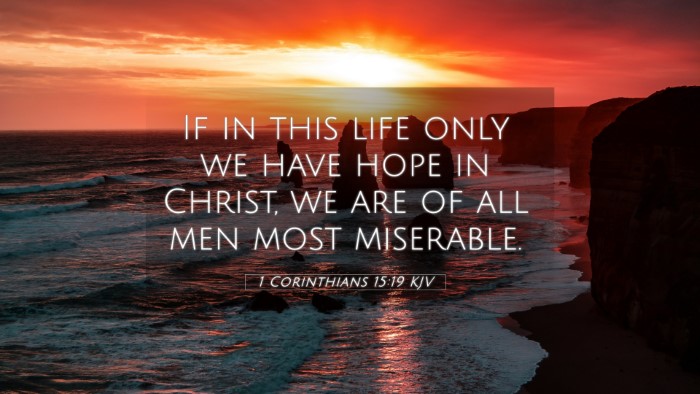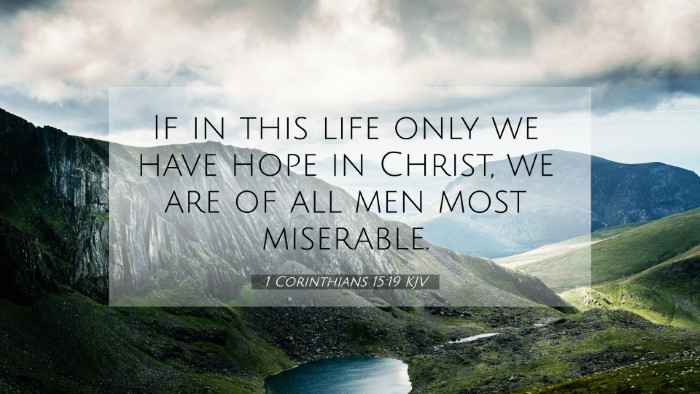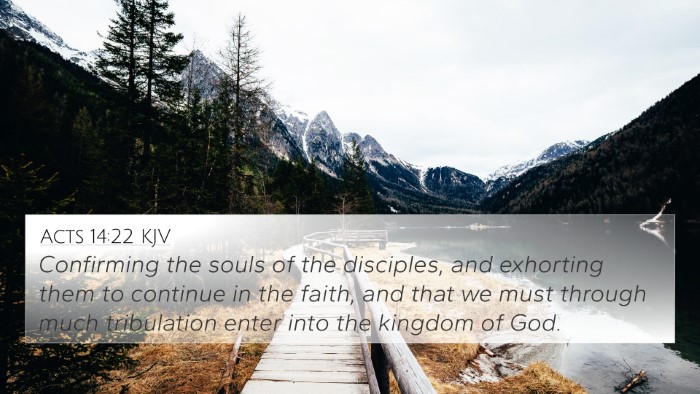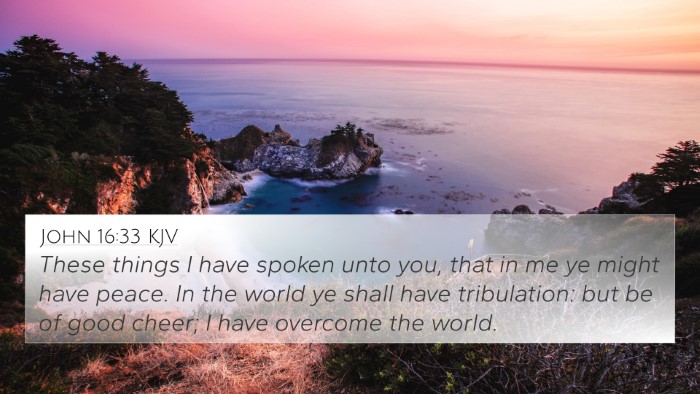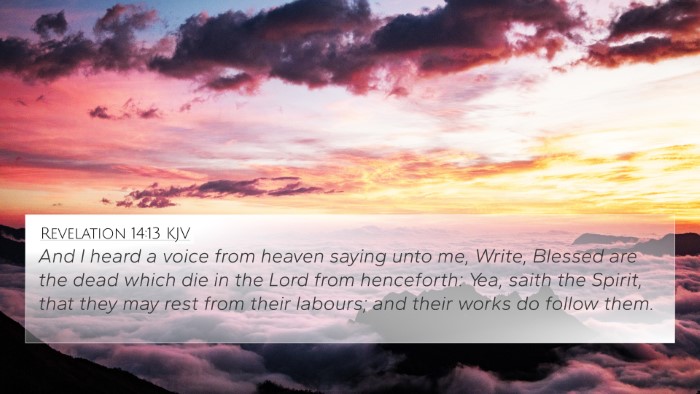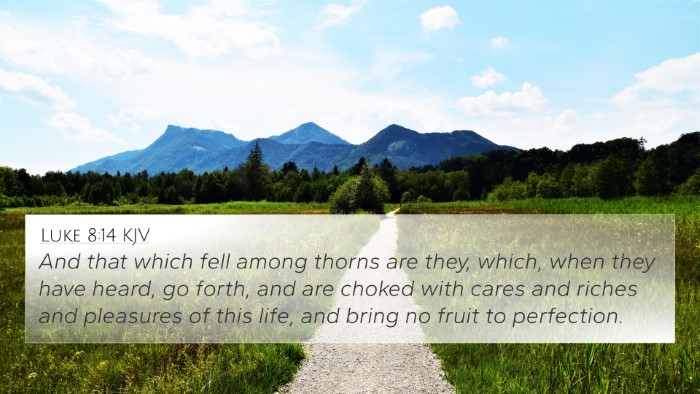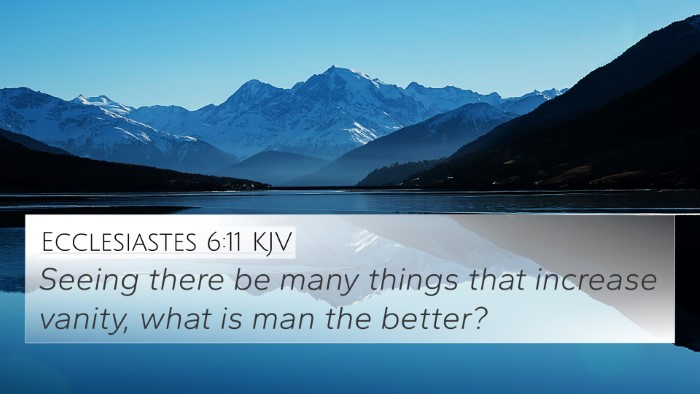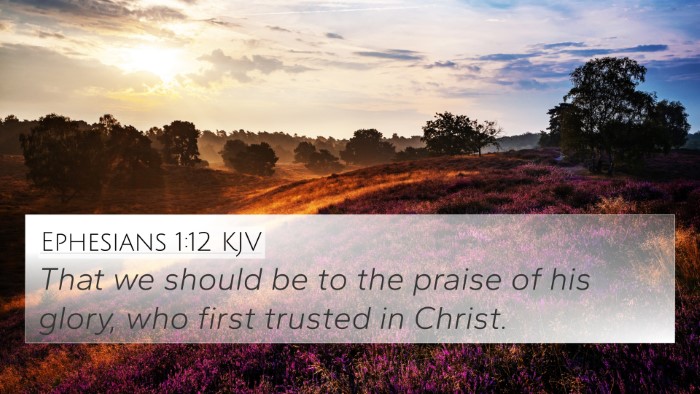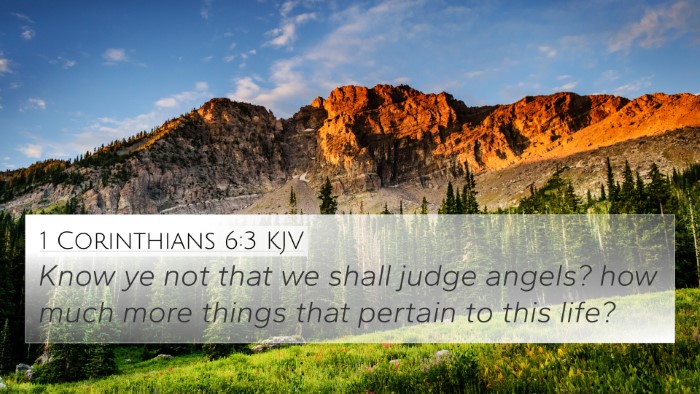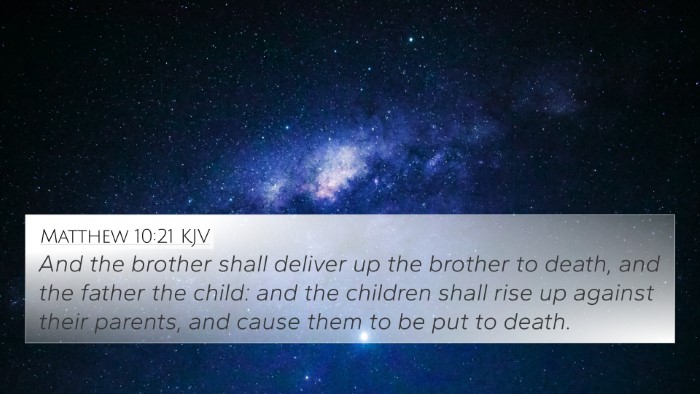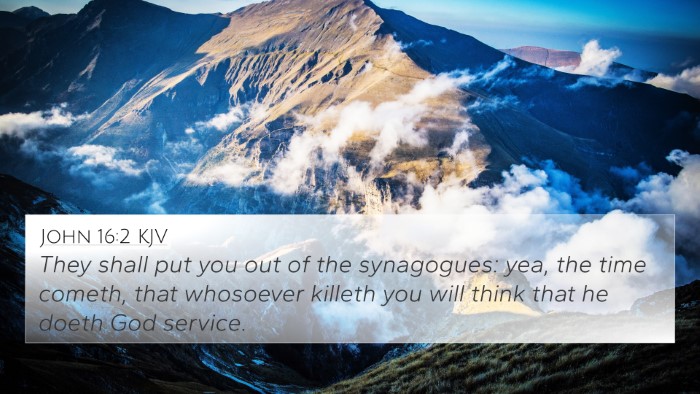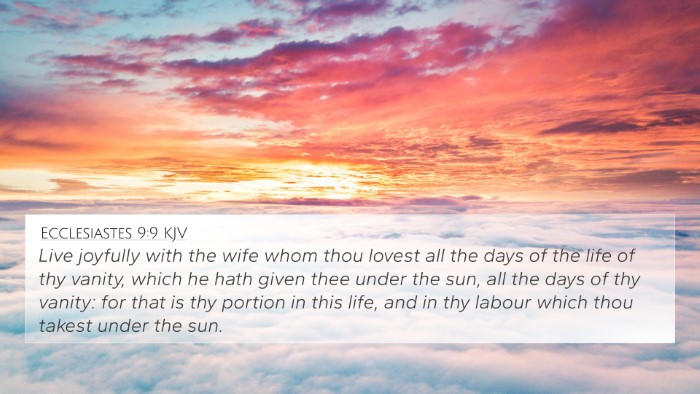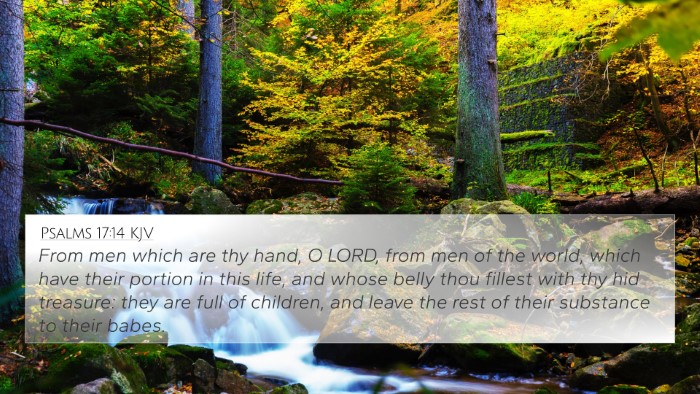Understanding 1 Corinthians 15:19
Bible Verse: 1 Corinthians 15:19 - "If in this life only we have hope in Christ, we are of all men most miserable."
Summary of the Verse Meaning
This verse emphasizes the futility of hope in Christ if it is confined solely to earthly life. The Apostle Paul, in this passage, suggests that true hope extends beyond this life into eternity. If one believes in Christ only for temporal benefits, they are left in a state of misery and loss. This teaching serves as a foundation for understanding the essence of Christian faith, which is rooted in resurrection and eternal life.
Insights from Public Domain Commentaries
- Matthew Henry: Henry emphasizes that the nature of hope should transcend earthly concerns. He highlights that the most significant aspect of the Christian faith is not just "hope in Christ" but the assurance of resurrection. He indicates that believers should focus on eternal life rather than temporal gains.
- Albert Barnes: Barnes speaks about the implications of having faith that does not extend beyond this life. He points out that if the Christian faith is only relevant here and now, believers are to be pitied for their misguided understanding. True faith recognizes the promise of resurrection.
- Adam Clarke: Clarke interprets Paul's remarks as a reflection on the philosophical perspective of hope within the scope of life. He asserts that genuine hope lies in the knowledge of eternal life secured through Christ's resurrection, thus rendering this verse pivotal for believers' understanding of their faith's purpose.
Bible Cross-References
- 1 Peter 1:3-4: "Blessed be the God and Father of our Lord Jesus Christ, which according to his abundant mercy hath begotten us again unto a lively hope by the resurrection of Jesus Christ from the dead."
- Romans 8:18: "For I reckon that the sufferings of this present time are not worthy to be compared with the glory which shall be revealed in us."
- 2 Corinthians 5:1: "For we know that if our earthly house of this tabernacle were dissolved, we have a building of God, an house not made with hands, eternal in the heavens."
- Philippians 3:20: "For our conversation is in heaven; from whence also we look for the Saviour, the Lord Jesus Christ."
- 1 Thessalonians 4:13-14: "But I would not have you to be ignorant, brethren, concerning them which are asleep, that ye sorrow not, even as others which have no hope. For if we believe that Jesus died and rose again, even so them also which sleep in Jesus will God bring with him."
- Hebrews 6:19: "Which hope we have as an anchor of the soul, both sure and steadfast, and which entereth into that within the veil."
- John 11:25-26: "Jesus said unto her, I am the resurrection, and the life: he that believeth in me, though he were dead, yet shall he live: And whosoever liveth and believeth in me shall never die. Believest thou this?”
Thematic Bible Verse Connections
This verse is rich in themes such as hope, resurrection, and eternal life. It invites cross-referential study with other scriptures that explore similar concepts of life after death and the nature of Christian hope. By understanding these themes, believers can draw deeper connections and enhance their faith through the inter-Biblical dialogue illustrated within the texts.
Tools for Bible Cross-Referencing
For those looking to delve deeper into comparative Bible verse analysis, consider utilizing several tools available for Bible cross-referencing:
- Bible concordance to locate key terms and themes.
- Bible cross-reference guide that outlines connections between scripture passages.
- Cross-reference Bible study methods for group exploration of scripture.
- Bible reference resources such as study Bibles with extensive notes.
The Importance of Cross-Referencing in Scripture Understanding
Cross-referencing biblical texts encourages a holistic understanding of scripture, revealing the interconnectedness of biblical teachings. For instance, examining links between the resurrection discussed in 1 Corinthians 15 and the Gospels enhances understanding of foundational Christology. This practice also enriches sermon preparation, providing depth and insight into the theological implications of verses like 1 Corinthians 15:19.
Conclusion
In summary, 1 Corinthians 15:19 serves as a critical reminder of the significance of hope in the Christian faith. By exploring this verse through the lens of public domain commentaries alongside correlations to other scripture passages, believers can grasp the fullness of the Gospel and its implications for eternal life. Engage with these tools and insights to deepen understanding and cultivate a more profound faith journey.

